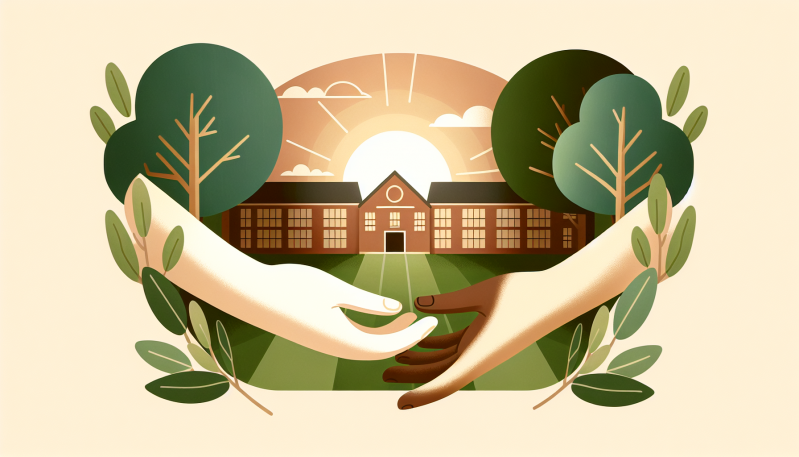In an age where the mental well-being of our children is being pushed to the edges, there is a silent cry for help resonating within the walls of our schools. A cry that speaks the truth about loneliness, the desperate need for kindness, and the absolute necessity for diversity, equity, and inclusion (DEI). As schools become the battlegrounds for these social issues, FriendshipWeek emerges as a beacon of hope, much like UNICEF, but with a laser focus on the educational sphere.
As educational researchers specializing in social development, we’ve witnessed firsthand the transformation that occurs when FriendshipWeek’s principles are integrated into a school’s culture. The program is not just an event or a one-time initiative; it’s a continuous journey towards creating a supportive and accepting environment for all students, staff, and parents.
Friend Week’s initiatives are grounded in evidence-based practices that cater to the mental health needs of students while fostering an atmosphere where kindness is the norm, not the exception. The curriculum is designed to equip young minds with the tools to navigate the complexities of social interactions, understand the importance of mental health, and embrace the value of diversity in their communities.
Imagine a classroom where every child feels seen, heard and valued. A place where empathy and compassion are as critical as math and reading. It is in such settings that children learn the true essence of friendship and teamwork. Our goal at FriendshipWeek is to transform every classroom into this ideal environment.
During Friendship Week, students participate in activities that encourage them to reach out to peers, share their feelings, and develop a deeper sense of empathy. Parents are engaged through workshops that provide them with strategies to support their children’s social and emotional development. School staff are not left out; they receive training on integrating DEI principles into their teaching practices and creating inclusive lesson plans.
The impact of such a comprehensive approach cannot be overstated. Studies have shown that when children feel supported and included, they are more likely to succeed academically and less likely to engage in bullying behavior. DEI initiatives within schools not only prepare students to thrive in a diverse society but also help prevent mental health issues related to exclusion and isolation.
At the heart of FriendshipWeek’s mission is the unwavering belief that every child deserves a friend. Through our collective efforts, we can ensure that loneliness is replaced by lasting connections, fear is overcome by confidence, and indifference is transformed into action.
We invite you to join us in this essential movement. Share your stories, participate in our programs, and become a champion for change in your community. Together, we can create a world where the well-being of our children is not just a priority but a reality.
In closing, FriendshipWeek is more than a program – it’s a promise. A promise to our children that they will not have to face the challenges of growing up alone. That their mental health matters. That kindness is contagious. And that when it comes to diversity, equity, and inclusion, they will always have a seat at the table. Let’s make that promise a reality, one friendship at a time.


